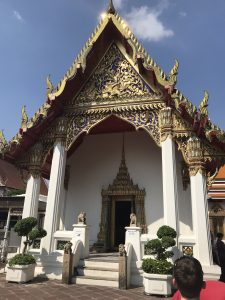What does it mean to network using social media?
Defining networking using social media requires the preceding definition of the broader context in which it lays, namely, personal learning network(PLN). PLN is shaped by our interactions with people, devices, and information according to our habits and preference. To network using social media means building our networks of people and information by using social media such as Facebook, Twitter, and Instagram. Gutierrez defines PLN as learning, communicating, and sharing knowledge with others without location and time limitations. (What Are Personal Learning Networks?) She further argues that intention is crucial in PLN because it targets certain learning groups with specific learning purposes. As technology and social media cleared the blockade of time and geographic location in learning, learners became more motivated to participate in networked publics.
How are we motivated to participate in networked publics?
In my experience, participating in networked publics consolidates and deepens my knowledge. At the beginning of 2021, I created a chat group on WeChat. I invited those interested in reading to participate in the chat group. After two weeks, I found out that I have read more books these two weeks than I did last month because I was motivated to share them with my group. Comments from others and discussions about the book always excited me to share my thoughts with the public. In this process, I practiced and strengthened the learned knowledge and improved my weakness by seeking answers from others. Therefore, I would agree with Gutierrez that PLN builds connections between select people to motivate learners to participate in networked publics for new learning.
While public communication rewards learners by consolidating learned knowledge, it also allows learning and communication to occur in difficult situations such as COVID-19. I recently returned to China, supposedly, I would not be able to continue schooling; however, remote technical support such as Zoom and social media enables me to continue studying at a different location in a different time zone.
Risks&rewards of public communications
Although, studies indicate that privacy issues still remain a significant concern, and social media will only aggregate this issue because it is likely that we grow more and more dependent on it in the future. Information on our online activities would be collected and patterned politically. (Boyd) The author proposes that internet users could use coded language, or “social steganography,” to protect privacy. Honestly, I used to think that “we could not protect our privacy anyway, why should I bother protecting it?” The author changed my view, and I realized that my previous thought would only empower those illegal activities against our privacy, and it is the last ground that we have to defend.
References:
Boyd, Danah, Surveillance & Society. Networked Privacy. ojs.library.queensu.ca/index.php/surveillance-and-society/article/view/networked/networked
Future Learn. What Is a Personal Learning Network (PLN)? www.futurelearn.com/info/courses/learning-network-age/0/steps/24644.
Gutierrez, Karla. What Are Personal Learning Networks? https://www.shiftelearning.com/blog/personal-learning-networks
Rajagopal, Kamakshi, et al. View of Understanding Personal Learning Networks: Their Structure, Content and the Networking Skills Needed to Optimally Use Them: First Monday. firstmonday.org/ojs/index.php/fm/article/view/3559/3131.

